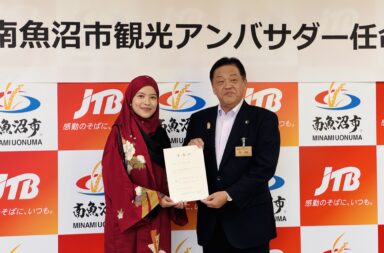This post is also available in: Indonesia
Written by: Rini Aristiani
I was graduated from nursing school which then brought me to work at a hospital in Bandung (West Java), Indonesia, for 2 years. At the time, I heard from my friend about a program to work in Japan for nurses and caregivers called “Indonesia Japan Economic Partnership Agreement (IJ-EPA)” as a partnership program between Indonesia and Japan (G to G).
*For those from Indonesia and would like to join the IJ-EPA program, please check the requirement needed on https://bp2mi.go.id/.
In my childhood, I was having a dream to go to Japan someday, and this program reminds me of that dream and encouraged me to participate.
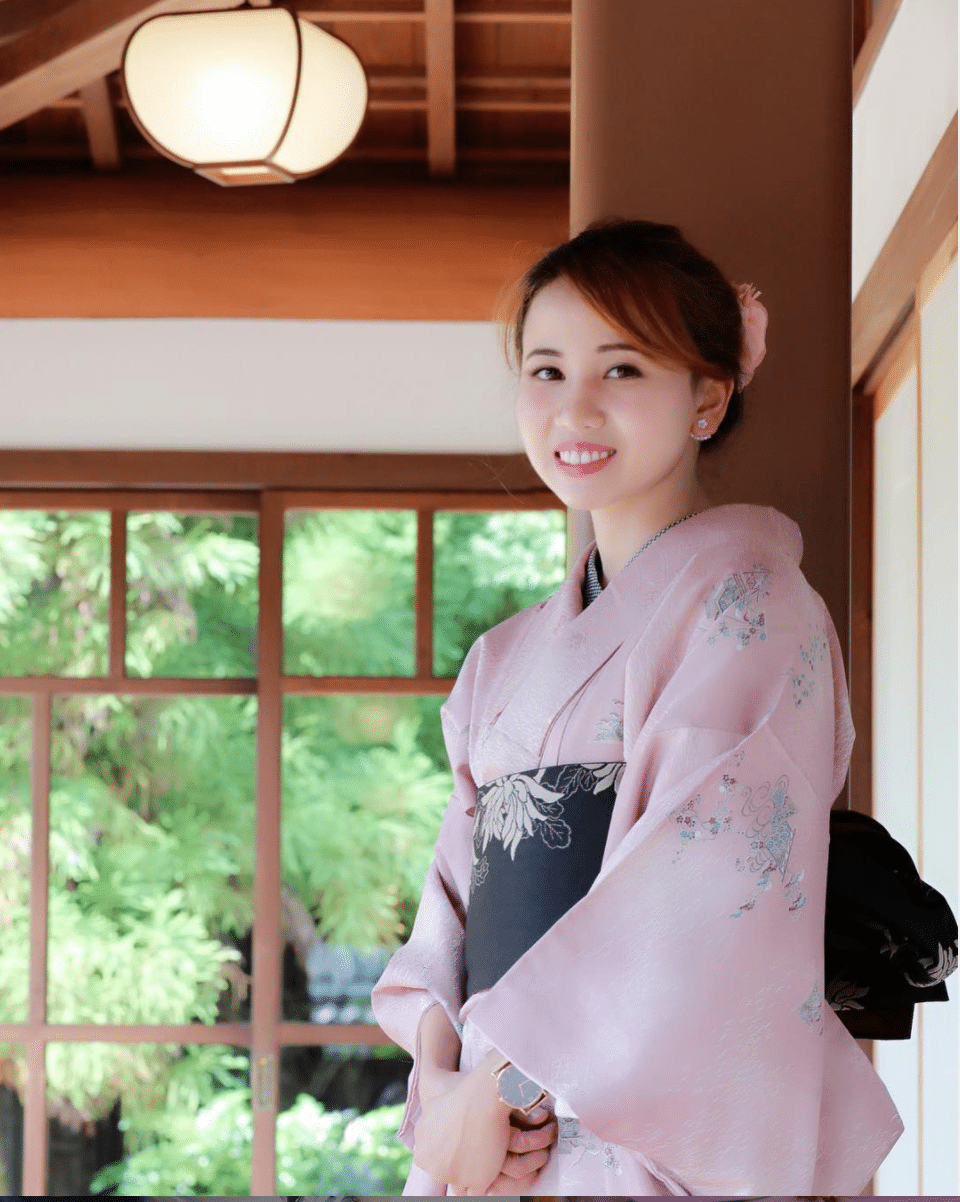
Applying for IJ-EPA Program
I can’t get my mind off of the opportunity after my friend told me about it. I seriously searched for detailed information about the program from BNP2TKI website and dare myself to make an application after checking the requirements and documents needed.
I need to pass the documents screening, then followed by the nursing test, psychotest, interview test, and medical check-up. Alhamdulillah, I successfully passed all the tests and I stepped forward to the matching process. I was given an ID and password from JICWELS, a Japanese body that manages the EPA program to access a website with a list of hospitals and nursing homes for elders who needs caregivers. Besides, there are some nursing homes that directly come to Indonesia to promote their facilities. In my case, I checked on the website.
In the first matching process, I chose 10 institutions and put it in an order of priority. Unfortunately, I was failed and then I tried the second chance of matching process (we have two chances to get matched). Learning from the first chance, I chose 20 institutions, which is twice more than the first time, to widen the opportunity. Alhamdulillah, I got matched institution, agreed to the letter of consent, and am ready for Japan!
It was not an easy thing for me to have my mother’s acceptance towards my decision to move to Japan, but after negotiating and discussing, I got my mother’s permission and was ready to for Japan.
See Also
Malaysian Muslimah Working in Japan; “Effort Won’t Betray You”
Finding a Passion; From Egypt to Japan
Learning Japanese
After we found matched facilities to work at, we have to join the Japanese lesson held by the Japanese government for a year; the first 6 months in Jakarta and the next 6 months in Japan, with all the expenses from dormitory and food to pocket money, are borne by the Japanese government. At that time, I got pocket money of US $ 10 per month which I save for use later in Japan.
See Also
Learning Business Japanese: My Golden Ticket from Japan to the World
Before we depart for Japan, we will need to take another medical checkup. If there is found any trouble with our health, we will get a result of [unfit] which then block our way to Japan even we got matched. I got some of my friends were receiving [unfit] and I was very sad as I can’t go to Japan together with them. For those with the [fit] results, we were then asked to sign an agreement.
The departure date was arranged according to the date of visa issuance. Three days before departure, we got the last briefing in a hotel in Jakarta. Furthermore, the Japanese embassy held a party for us a day before departure.
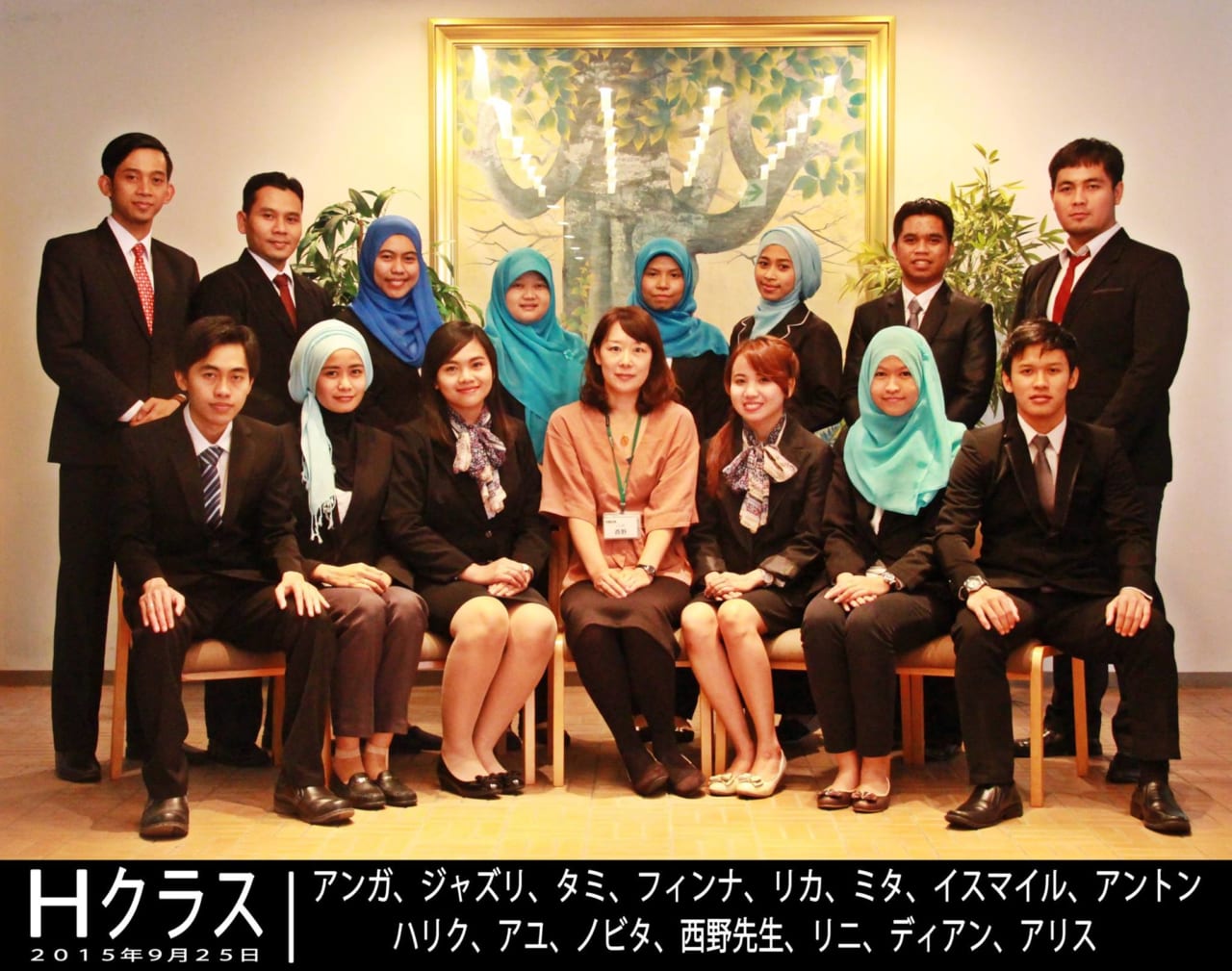
Living in Japan
Touchdown Japan, I continued learning Japanese at the AOTS Chubu Kenshu Center for 6 months. Same to the facilities we got in Indonesia, we had a comfortable place to rest and learn, also pocket money with the same amount we got in Jakarta which then I used to buy daily needs. I was surprised that I have to insert cash into a register machine to purchase items.
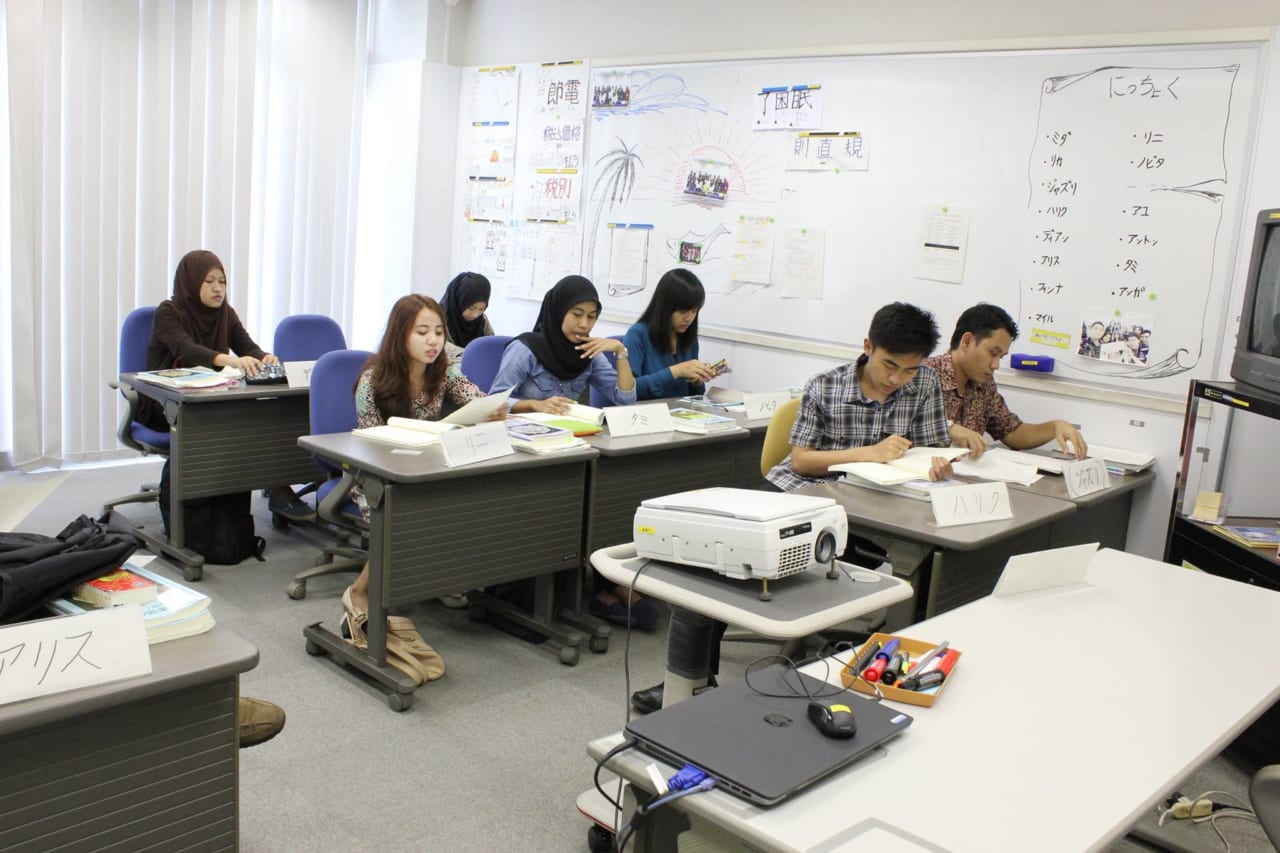
Japanese learning class in Japan
After 6 months, we had to say goodbye to our fellows who learn Japanese together and departed for each hospital and nursing home in areas in Japan.
See Also
For Japan in The Future. Attempts of Nursery School in Food Diversity Issues
Muslim-Friendly & Foreigner-Friendly Schools in Japan
Working in Japan as a Caregiver
I was placed in a hospital in Yamaguchi Prefecture. The division head and office head were welcoming us very friendly and swiped away my worries (as well as my colleagues’ too!) about working in a new place.
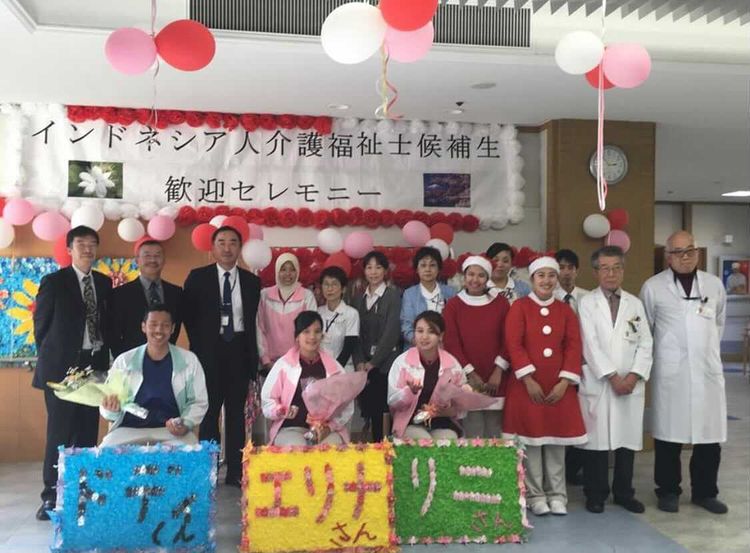
Welcome ceremony
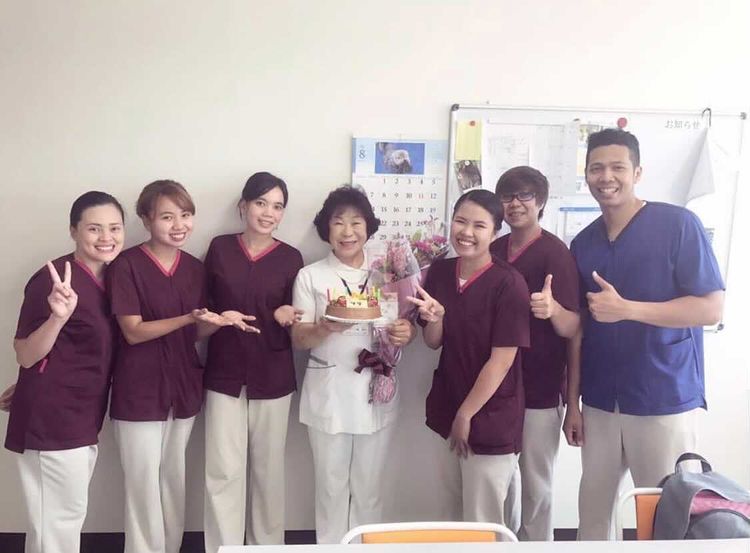
We were living in a dormitory on the upper floor of the hospital and we were sharing the bathroom and kitchen.
Working as a caregiver is pretty exciting and interesting. My colleagues and patients were all kind and friendly. They even patiently explain to me something I didn’t understand.
See Also
FAQ ; Working in Japan
The Ever-Evolving Tokuyama Zoo in Shunan City, Yamaguchi Prefecture
Got a job as a caregiver and actually working in a hospital is not our goal. From this IJ-EPA program, we are expected to pass a national examination for nurses and caregivers (kaigofukushishi kokkkashiken) which is known very hard that requires a high level of Japanese. Alhamdulillah, we are very blessed as our hospital provides us a teacher.
See Also
Child-Raising and Parenting in Japan; Everything You Need to Know
FAQ ; A Maternity Guide for Muslims Living in Japan
Challenges in Having a Medical Treatment in Japan For Foreign Residents and Tourists
